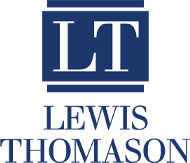In 2002 Tennessee enacted the Education Records as Evidence Act. At least once a week, I get the opportunity to speak with attorneys about producing educational records pursuant to this statute. Conversations are usually initiated by a client school board employee who received a subpoena duces tecum to appear and produce evidence contained in a student’s transcript and records. The client school superintendent then contacts me and requests I do something to prevent this occurrence It is here where knowledge of this little-known statute, and a measure of diplomacy mixed with willingness to assist my colleagues, usually gets us past a tricky hurdle.
Read Chuck’s full article in the August/September issue of the Nashville Bar Journal starting on page 26.
 Charles W. (Chuck) Cagle is a shareholder and chair of the Education Law and Government Relations Practice Group for the firm’s Nashville office. He oversees the firm’s representation of over 70 public boards of education, two private schools, two private universities, and a private medical school in a variety of legal matters including employment issues related to both licensed and classified employees, employee and student discipline, employee and student rights, special education and disability accommodation, constitutional rights issues, sexual harassment and bullying issues, civil rights, desegregation, school system consolidation, tort liability, school system business practices, school funding, taxation, and school construction.
Charles W. (Chuck) Cagle is a shareholder and chair of the Education Law and Government Relations Practice Group for the firm’s Nashville office. He oversees the firm’s representation of over 70 public boards of education, two private schools, two private universities, and a private medical school in a variety of legal matters including employment issues related to both licensed and classified employees, employee and student discipline, employee and student rights, special education and disability accommodation, constitutional rights issues, sexual harassment and bullying issues, civil rights, desegregation, school system consolidation, tort liability, school system business practices, school funding, taxation, and school construction.




